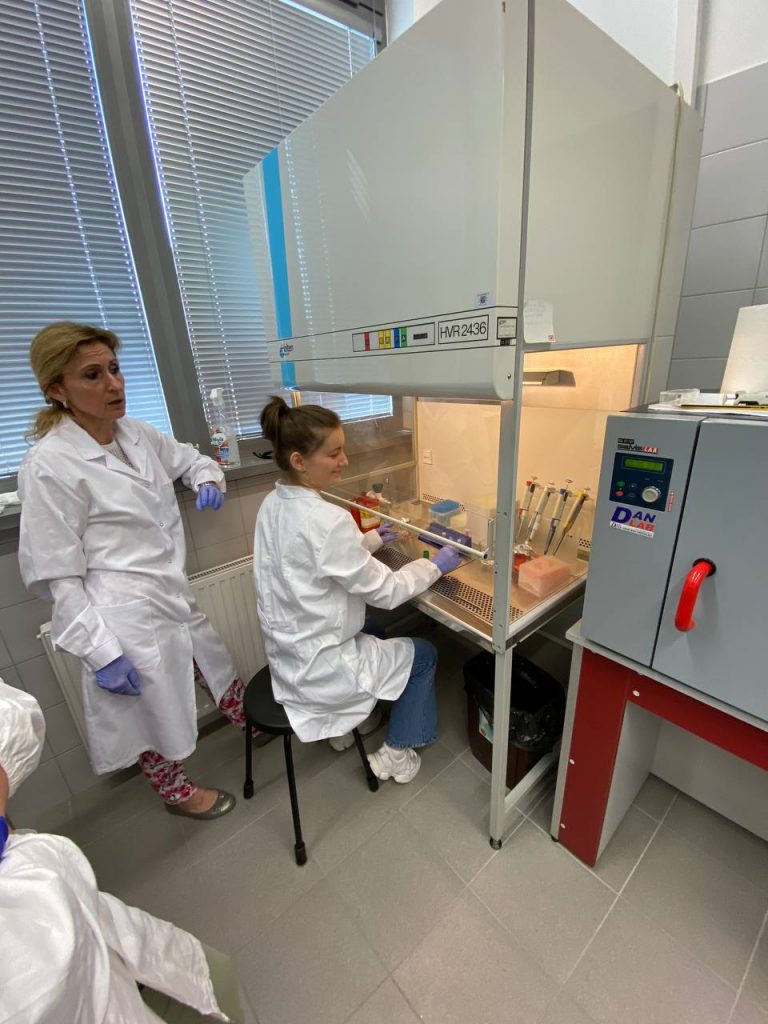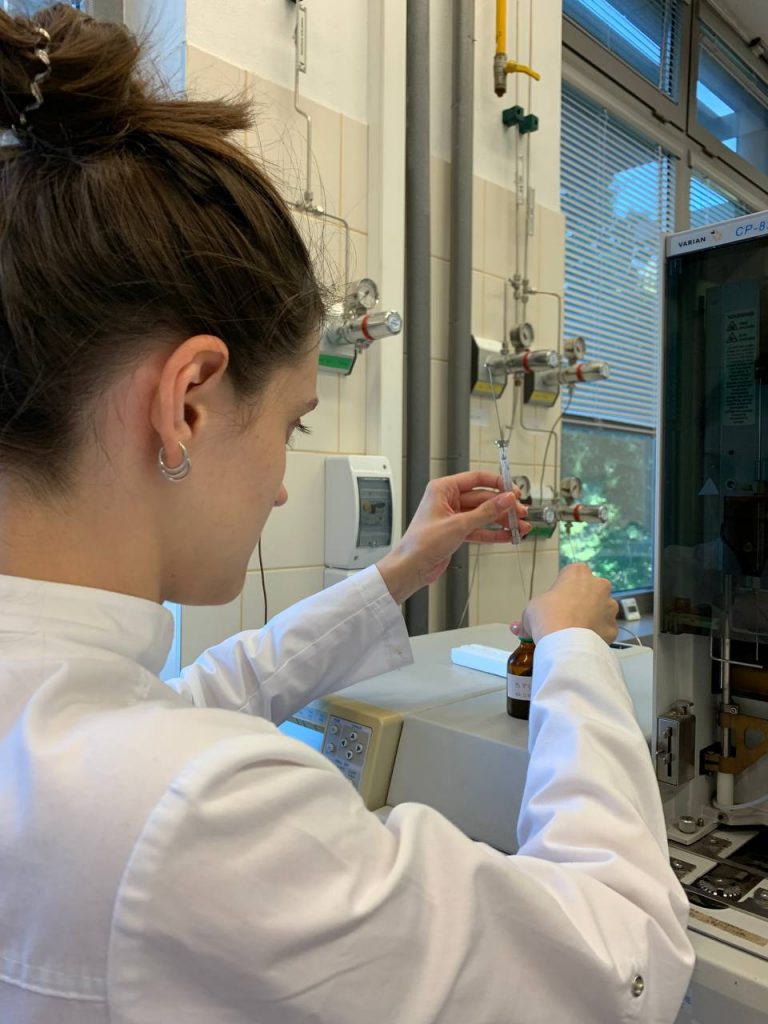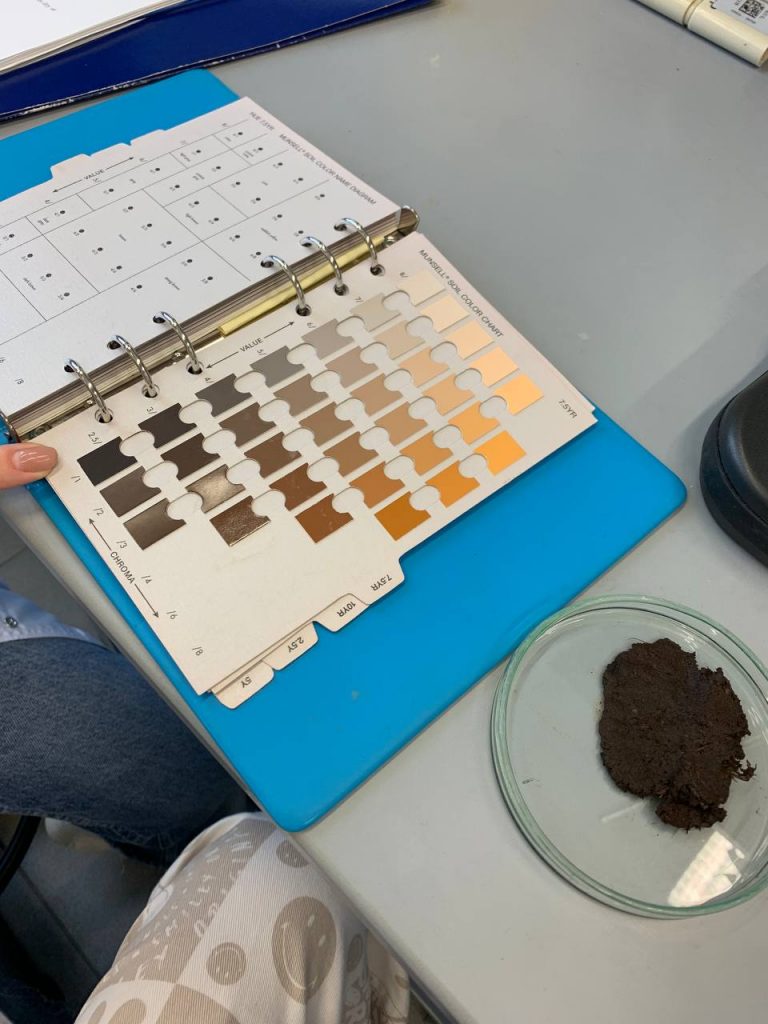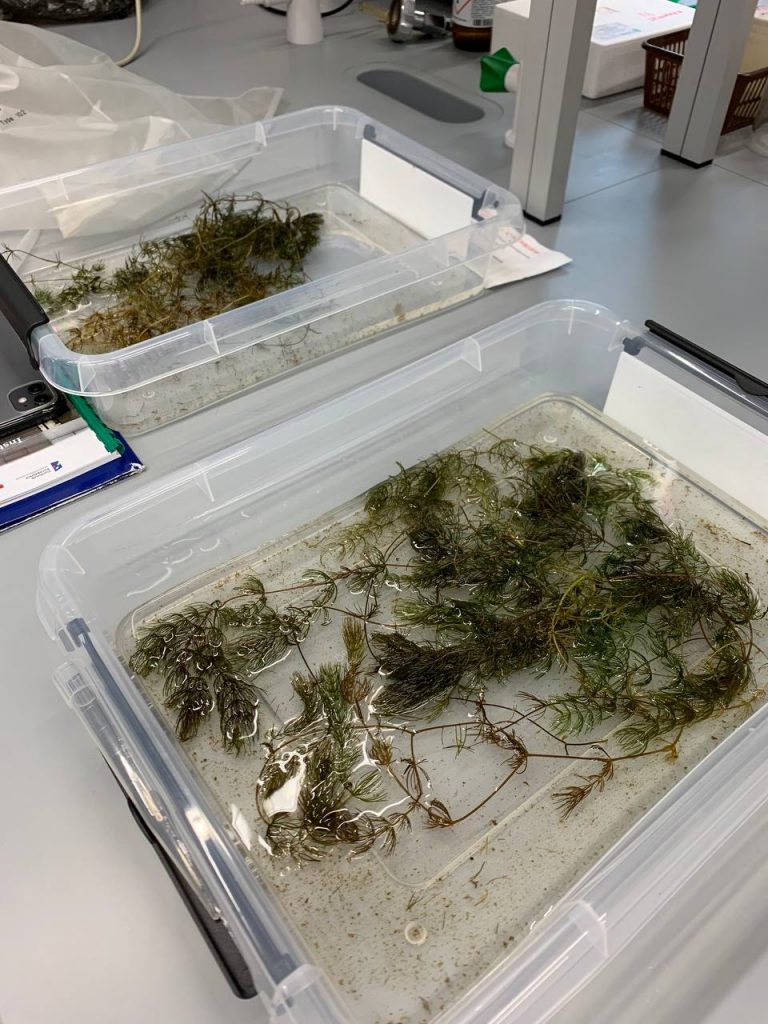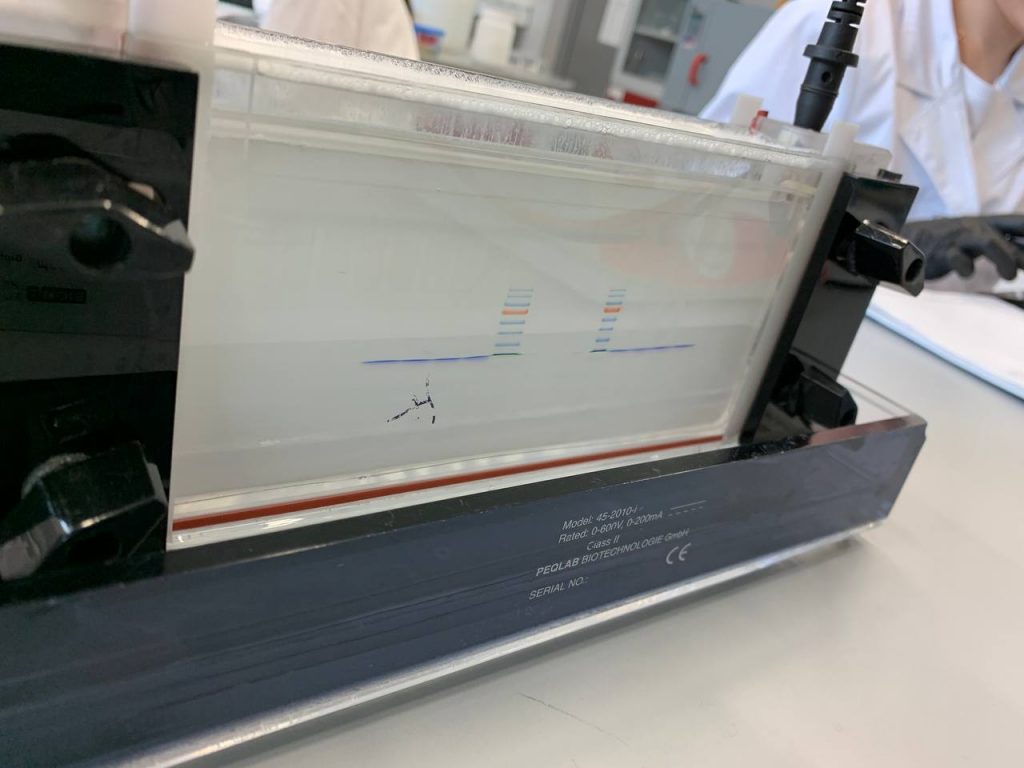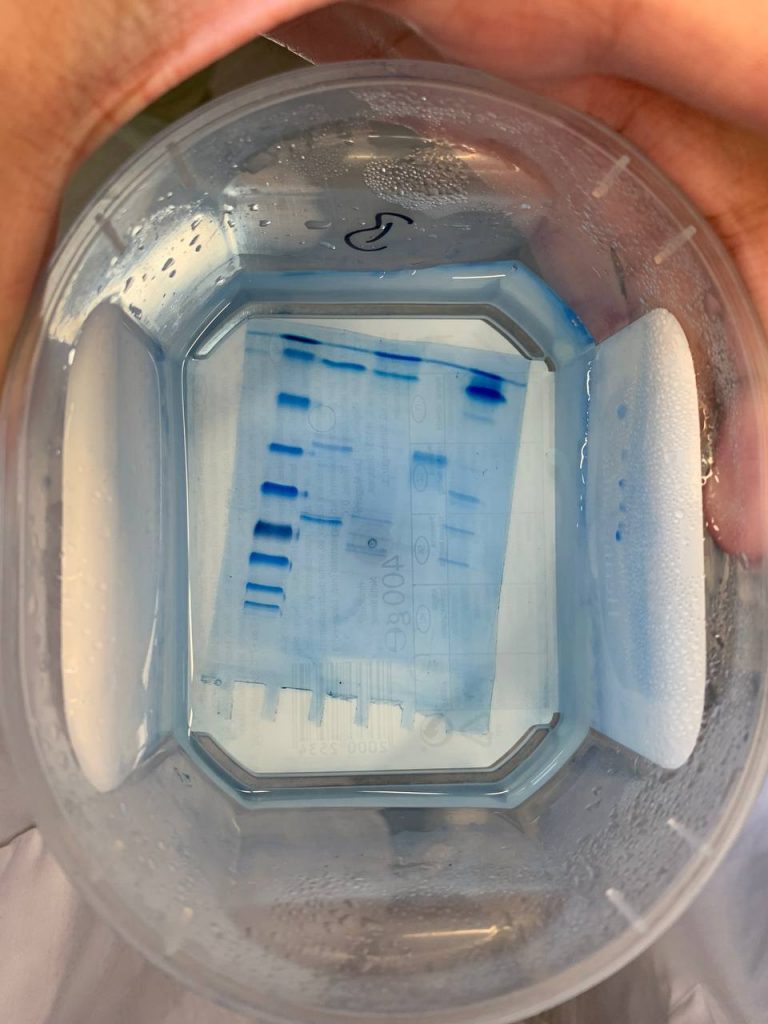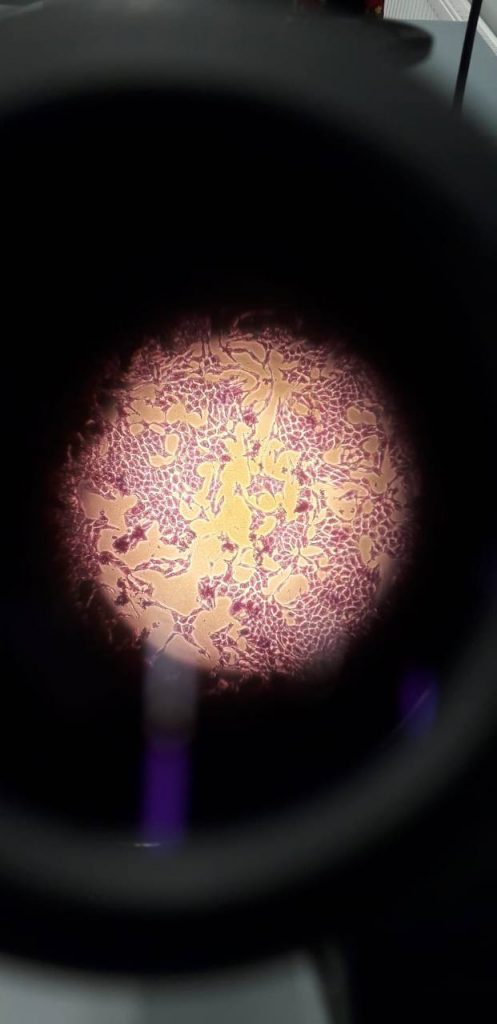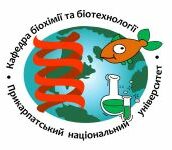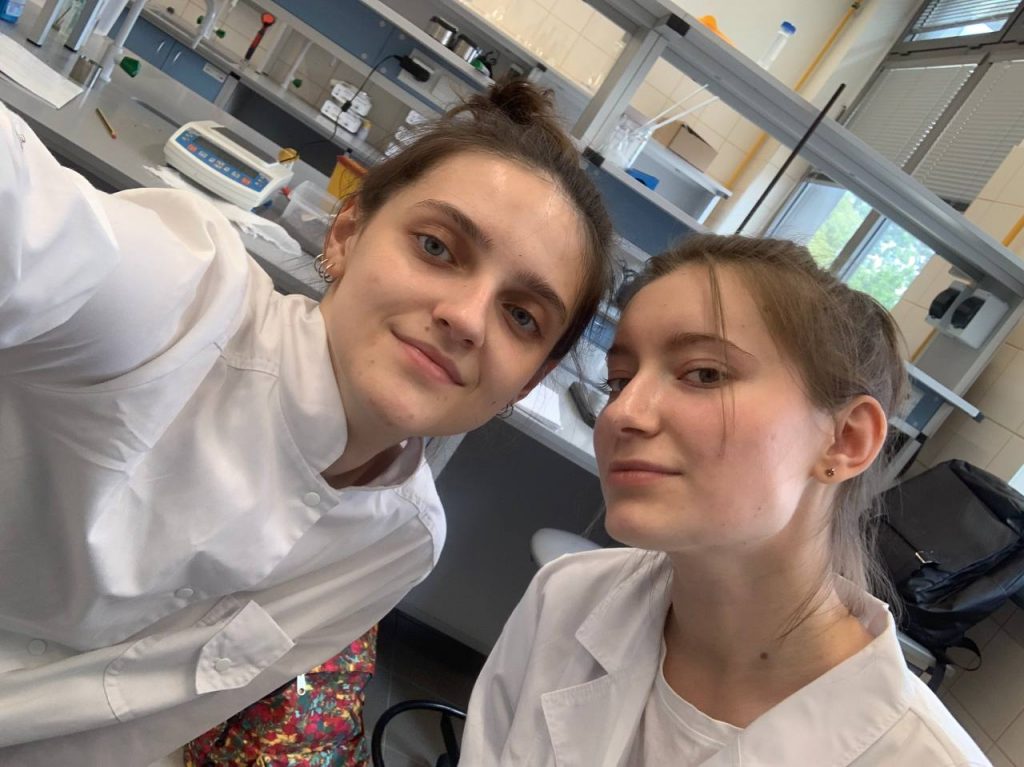Our fourth-year students Maria Koshka and Bozhena Luniv completed a short-term internship within the educational program of the Institute of Biological Sciences of the John Paul II Catholic University of Lublin (Poland).
Here are their impressions:
Maria Koshka
“The training lasted for two weeks, during that time we got acquainted in practice with the methods of determining the concentration of chlorophyll A in water samples, physical and chemical analysis of soils, isolation of bioactive substances from soil samples, and cell cultivation. Our teachers were satisfied with the competent and organized work of our small Ukrainian team, we owe this to our department, which has been training real professionals in its walls for many years.
However, the trip to Lublin was not limited to laboratory work. For all the participants of the program lectures were organized, at which we studied Polish history, culture and language. In addition to this, our schedule was packed with interesting excursions and small trips.
It was a wonderful two weeks, I got to know new places, new methods, new people, but yet there is no better place than my native home. I thank the John Paul II Catholic University of Lublin for the opportunity to acquire new skills that will help me contribute to the development of our country in the future.”
Bozhena Luniv
“The program lasted three weeks and the training was in English. The first week was devoted to lectures, with the possibility of attending lectures from home. The other two weeks of practice, were divided into two parts: control of the ecological state of the region and pharmaceutical practice.
We managed to work with the water, soil and plant samples that were collected with our group. We used the chromatographic method to determine the content of chlorophyll, nitrates and sulfates in water, the carbon dioxide content in the soil, and we used microscopy to study water and plant samples.
In the second part we managed to work with Western blot method, calculated the concentratration of proteins and cultivated the cancer cells. Also, during the collection of samples, there was an opportunity to visit one of Poland’s national parks. It was interesting to work in a team with people from different countries, and to test own skills and knowledge in the “wild nature” outside the native laboratory. We were not disappointed and once again we made sure that the Department of Biochemistry trained us as specialists. This internship gave me a boost of motivation to continue working on our skills and attend new programs.”
